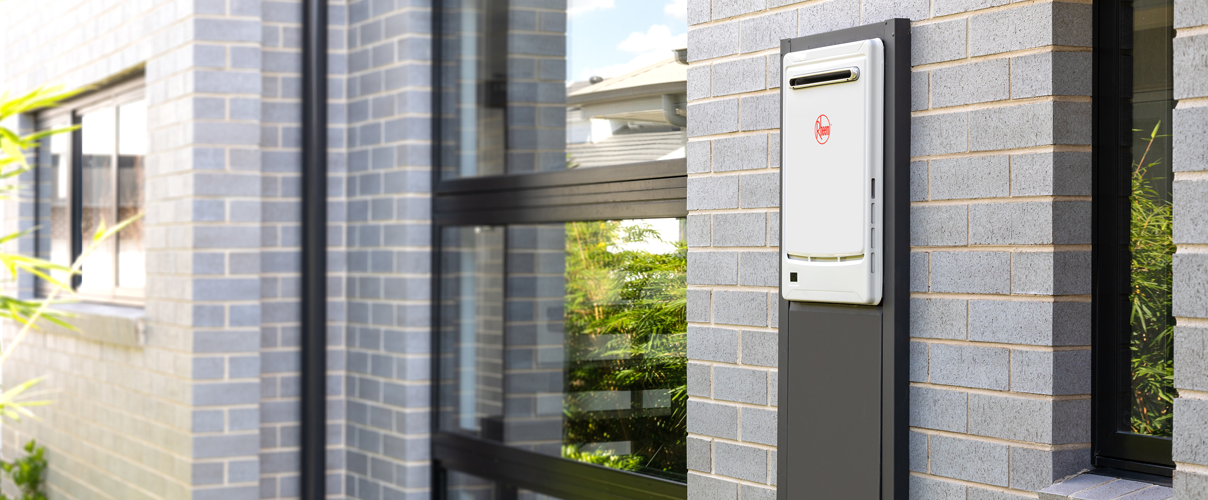What You Need To Know When Replacing Your Hot Water System

The humble hot water system. You don’t know what you’ve got till it’s gone.
You probably don’t think about it day to day. But when your showers suddenly run cold, it’s time to put some serious thought into how you want to replace this hardworking hero of your home.
Tempting as it is to replace same for same, it pays to research your options and possibly even change the way you do hot water at home.
We’ve asked our Brisbane partners in plumbing, Conrad Martens, for their advice on what you need to know when replacing your hot water system. They broke it down into 10 important considerations.
10 Things To Consider When Replacing Your Hot Water System
1. Energy Source And Efficiency
The first decision should be whether you’d prefer an electric, gas, solar or heat pump hot water system.
Electric: these can be the cheapest to buy and install, but typically are the most expensive to run.
Solar: on the other hand, solar typically has the highest initial costs, but is more energy-efficient to run. They also have the benefit of being an environmentally friendly option.
Gas: gas systems sit in the middle of the price range for purchase and installation. Gas is generally cheaper than electricity to run, especially for day use and if your home is already connected to gas. But it might not always be that way as gas becomes a less favourable energy source over renewable options.
Heat Pumps: another efficient option, heat pumps work a little like an air conditioner. They extract heat from the air to heat the water tank. They need to be installed outside in a well-ventilated area and can be a little noisy in the same way an air conditioning compressor is.
2. Tank Or Tankless System Type
The typical perception of a hot water system is the electric hot water tank. The water is heated and stored.
However, there is also the option of instantaneous or tankless systems. There’s no tank required because the water is heated as needed. They can cost more upfront but, being more energy-efficient can have a much lower running cost.
Tankless systems come in gas or electric models. Sometimes they can be problematic if low-flow showers or taps don’t offer sufficient pressure to trigger the heating.
3. Size And Capacity To Meet Hot Water Demand
Now is the time to make a few people accountable for their hot water use! Think of the person in your home who takes the longest, hottest showers and make sure your system of choice can keep them happy. If their happiness is important to you, that is. Also consider the number of occupants, bathrooms, and typical hot water activities, like washing clothes in warm water and handwashing dishes instead of using a dishwasher.
As a general guide, one person uses about 50L of hot water in a day.
A hot water specialist can help with your needs assessment – like our friends at Conrad Martens if you’re in Brisbane!
4. A System To Suit Your Climate

Some hot water systems are a little more suited to the warm sunny temperatures of Far North Queensland, while others perform better somewhere like Tasmania.
Heat pumps are generally better in warmer climates, although there are models made for colder conditions and models with boosters for cold days and high water-use.
If you opt for a solar hot water system, make sure your home has enough sun for it!
5. Rebates And Government Incentives
Check for any government rebates or incentives available for installing energy-efficient hot water systems. These can help offset the initial costs.
6. Plumbing And Installation Costs
Installation can include modifications to your home, especially if you’re changing the type of system or getting a larger tank. Get quotes from reputable plumbers or installers in your area.
7. Brand And Maintenance Requirements
Some systems may require more regular maintenance than others. Gas systems have more moving parts, which could add up to more maintenance costs. The quality of the system would also impact how frequently it needs servicing or repairs. Research the reputation of different brands and models. Look for customer reviews to gauge the reliability and performance of the hot water systems you are considering.
8. Warranty And Lifespan
A hot water system can last 8 to 20 years. More about this in our hot water system FAQS .
Check the warranty offered by the manufacturer. A longer warranty period can provide peace of mind regarding potential repairs or replacements.
9. Local Regulations And Compliance:
Ensure your chosen hot water system complies with local building codes and regulations. This is crucial for safety and legal reasons. Again, your local hot water specialist is the person to speak to about this.
And please don’t try to install it yourself. While we’re all for DIY projects, this is one that doesn’t get our nod of approval. In most cases, like in Queensland, it’s a regulatory requirement to get a licensed professional to install your hot water system.
10. Environmental Impact:
If you want to make an eco-conscious choice, opt for a solar or heat pump system. These have the lowest carbon footprint.
If all this information is making you feel a little hot and flustered, take a cold shower. You probably don’t have any hot water anyway. You could also turn to your local hot water specialist.
We partner with Conrad Martens because they’ve been leaders in plumbing in Brisbane for the past 41 years. Their strength is in having long-term employees to pick the right hot water system for each customer and job, making sure to only use the most trusted brands.
Just like Conrad Martens, we only sell trusted brands of hot water systems at Tradelink. Browse our range of electric, gas, heat pump, and solar hot water systems online , and read our hot water buying guide for extra tips. When you’re ready, contact us to make a purchase or ask more questions.

